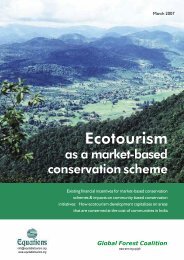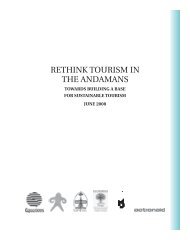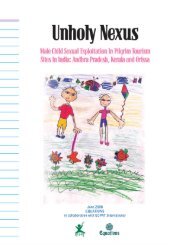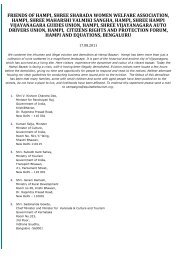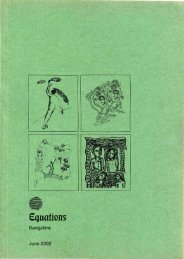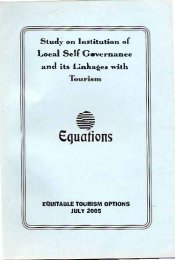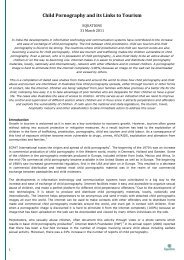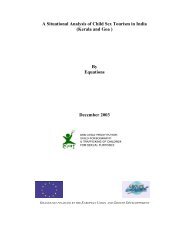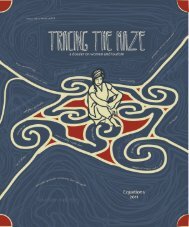Claiming the Right to Say No-30 Nov 09-EQUATIONS - Equitable ...
Claiming the Right to Say No-30 Nov 09-EQUATIONS - Equitable ...
Claiming the Right to Say No-30 Nov 09-EQUATIONS - Equitable ...
You also want an ePaper? Increase the reach of your titles
YUMPU automatically turns print PDFs into web optimized ePapers that Google loves.
<strong>Claiming</strong> <strong>the</strong> <strong>Right</strong> <strong>to</strong> <strong>Say</strong> <strong>No</strong><br />
De-narrativising Goa<br />
We have become heighteningly aware that Goa, Goans and our<br />
honourable visi<strong>to</strong>rs are subjected <strong>to</strong> a narrative of <strong>to</strong>urism that has led <strong>the</strong><br />
construction of Goa as a land of milk and honey for <strong>to</strong>urism industry. The<br />
fact that we have discovered <strong>the</strong> narrative impact on us as hosts, our land<br />
and visi<strong>to</strong>rs is already a step <strong>to</strong>wards <strong>the</strong> deconstruction of narratives<br />
that are shape <strong>the</strong> present discourse about <strong>to</strong>urism in Goa.<br />
In our quest <strong>to</strong> find a critical and creative response <strong>to</strong> <strong>the</strong> narrativization<br />
of Goa, we must be aware that we are always inherently embedded in<br />
some or <strong>the</strong> o<strong>the</strong>r narrative structure. Alister MacIntyre teaches that<br />
‘s<strong>to</strong>ries are lived before <strong>the</strong>y <strong>to</strong>ld’. We live our narratives and understand<br />
o<strong>the</strong>rs in terms of narrative or because of narrative. As we are both <strong>the</strong><br />
authors and ac<strong>to</strong>rs of our own narratives, our present is shaped by <strong>the</strong><br />
image of <strong>the</strong> future and represented in <strong>the</strong> in our present aims and goal,<br />
as well as constrained by <strong>the</strong> past. Thus, within our narratives, we pursue<br />
our virtues and our vices. This means our narratives present us standards<br />
of excellence.<br />
The form of <strong>to</strong>urism that is pursued in our land is a natural out come of <strong>the</strong><br />
kind of narrative of <strong>to</strong>urism that we have constructed. The standards of<br />
excellence that <strong>the</strong> <strong>to</strong>urism industry in our land has uncritically set have <strong>to</strong><br />
be studied with due attention.<br />
Although we are born in a cultural narrative and have no freedom <strong>to</strong> say<br />
‘I don’t want <strong>to</strong> start from here’ yet we can reach a critical moment of<br />
awakening like <strong>the</strong> man who happens <strong>to</strong> slip out of Pla<strong>to</strong>’s cave. This<br />
critical moment of awakening results in<strong>to</strong> a leap in consciousness and we<br />
can begin <strong>to</strong> understand <strong>the</strong> narrative impacts on our life and thus raise<br />
questions on <strong>the</strong> fitness of <strong>the</strong> standard of excellence emerging from <strong>the</strong><br />
<strong>to</strong>urism narratives that dominate <strong>the</strong> scene.<br />
Re-narritivising Goa<br />
The project of deconstruction of <strong>the</strong> narrative entanglement of Goans is<br />
not a bed of roses. This noble project is indeed <strong>the</strong> need of <strong>the</strong> hour as<br />
8



